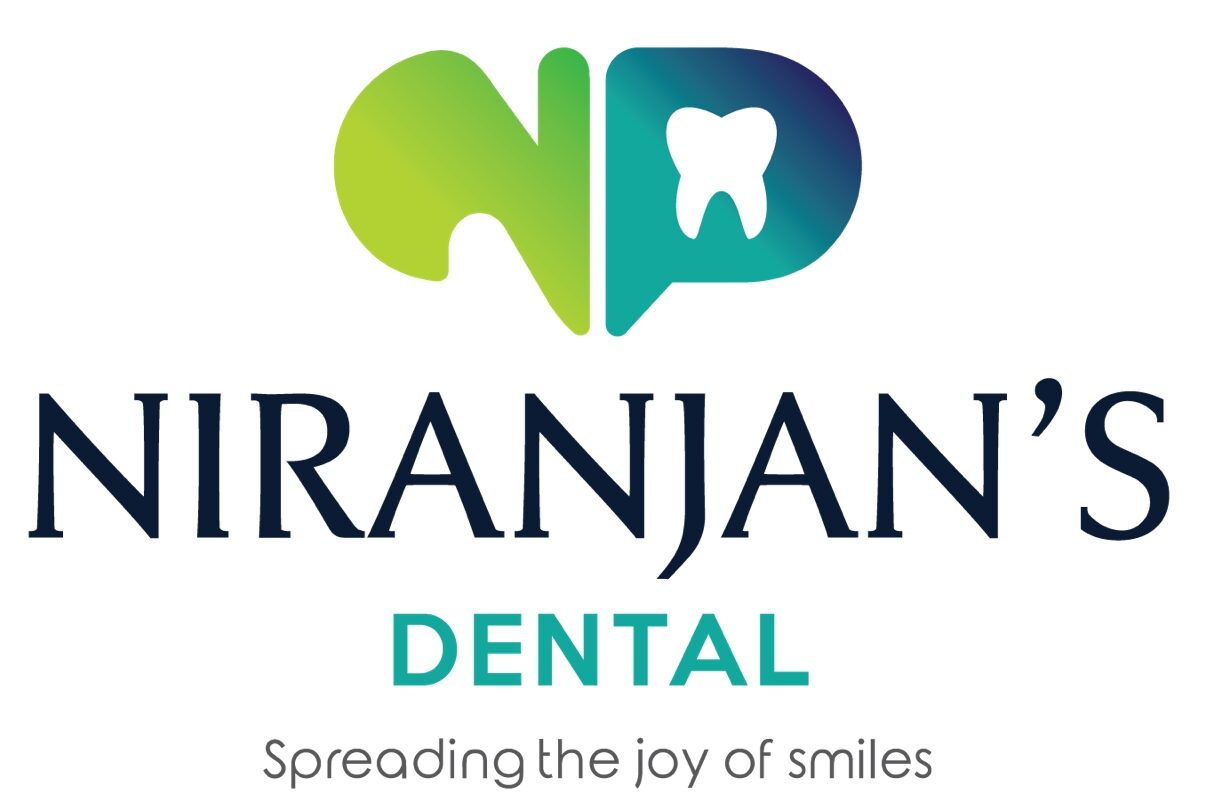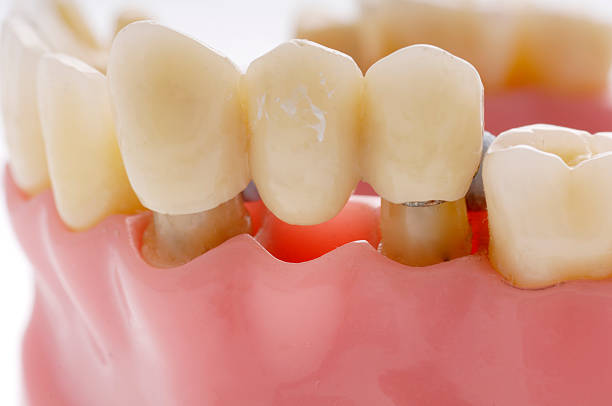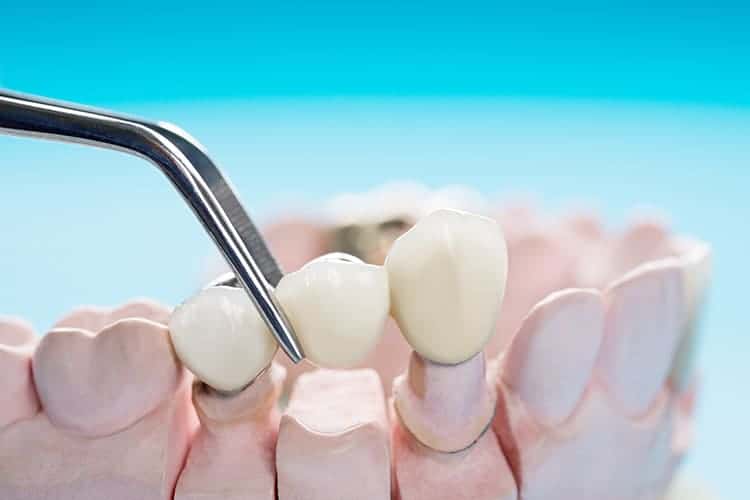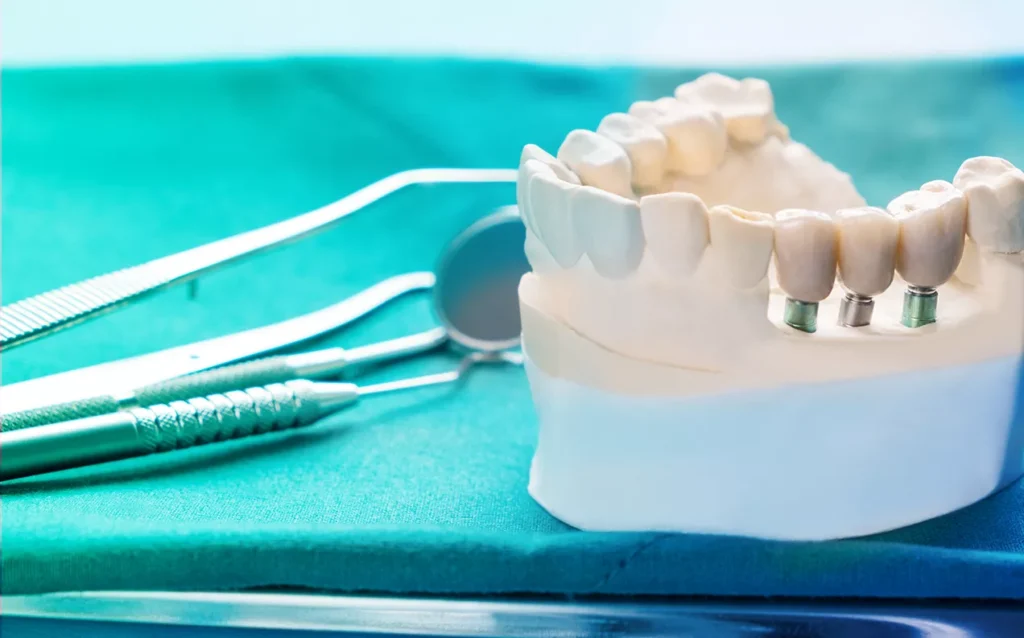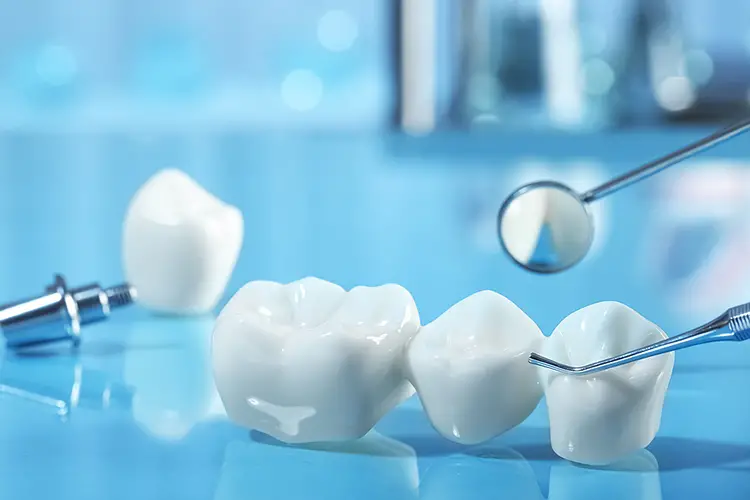Dental Crowns and Bridges
Dental crowns and bridges are common dental restorations that can help improve the function and appearance of teeth. A dental crown is a cap that covers or encircles a tooth or dental implant, and can be used to restore a damaged or decayed tooth. A dental bridge is a type of restoration that can replace one or more missing teeth by anchoring an artificial tooth to the adjacent natural teeth or dental implants.

